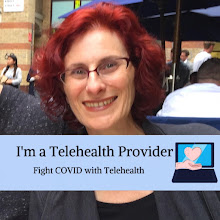 As a parent of two young kids who are still growing, I expose them to different foods and healthy choices so they develop good eating habits. Being surrounded by so many artificial colors and additives can make this a challenge.
As a parent of two young kids who are still growing, I expose them to different foods and healthy choices so they develop good eating habits. Being surrounded by so many artificial colors and additives can make this a challenge.BusinessWeek writer Cathy Arnst recently posted a story, called "How Mac 'n' Chees Is Like a Cigarette" about hypereating, as explained in The End of Overeating, by Dr. David Kessler, a renowned scientist and former FDA director who set out to figure out the reasons behind the obesity crisis besetting the nation. Arnst writes:
"Our national weight gain is not, as many people assume, because we are far less active; studies have found little difference in energy expended now than in the 1950s. It is because we are eating far, far more calories than ever before, in the form of soda, junk food, sweets, fat and salt laden meals, and huge portions. We have become addicted to food, and that addiction starts in very early childhood.
"Kessler lays out how sugar, fat and salt stimulates the reward centers of the brain in much the same way as cigarettes, alcohol and illicit drugs. By eating food that is extremely palatable, we keep wanting more, whether or not we are hungry. Since highly palatable junk food is socially acceptable, and often cheaper than the healthy stuff, we keep going back for more. The food industry knows this better than anyone. Kessler quotes an industry consultant who says that food manufacturers try to hit the “three points of the compass”:
Sugar, fat and salt make a food compelling, said the consultant. They make it indulgent. They make it high in hedonic value, which gives us pleasure. “Do you design food specifically to be highly hedonic,” I asked. “Oh, absolutely,” he replied without a moment’s hesitation. “We try to bring as much of that into the equation as possible."... Kessler, who is a pediatrician, says reward-driven eating begins in early childhood, and seems to be starting younger and younger... [and] attributes this breakdown in part to the larger and larger portions served children."
Eating habits are learned and as parents we are our children's first teachers. While buying processed or fast food may seem convenient, the effects can last their lifetime.
There is good news about eating in Los Angeles.
We have many Farmer's Markets, Organic grocers, and health-conscious restaurants to choose from. Websites like Yelp.com show reviews for Health Food stores and organic restaurants in your neighborhood from your neighbors. Your efforts as a parent benefits your child's health and future.





No comments:
Post a Comment
Thank you for your feedback.